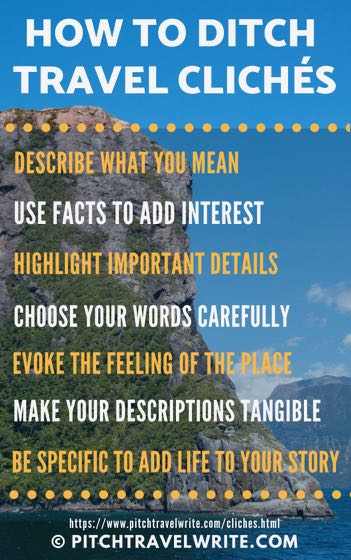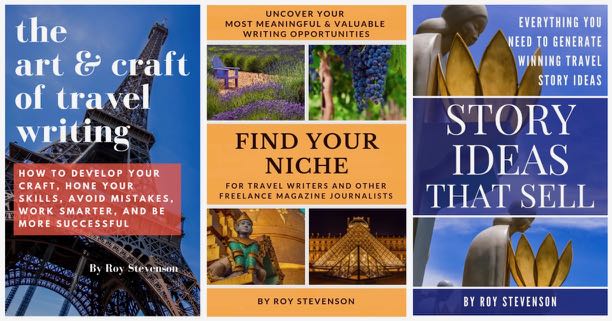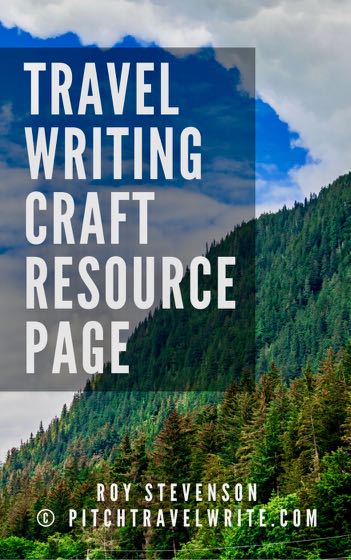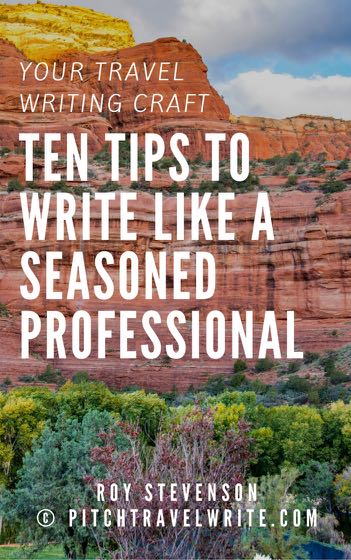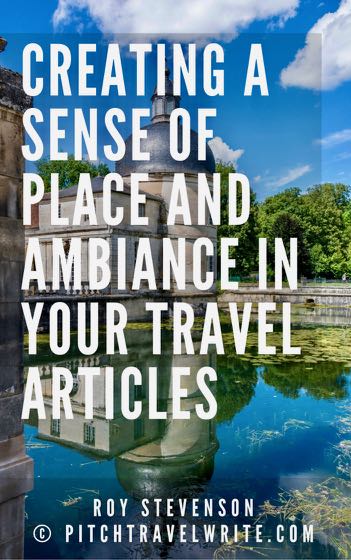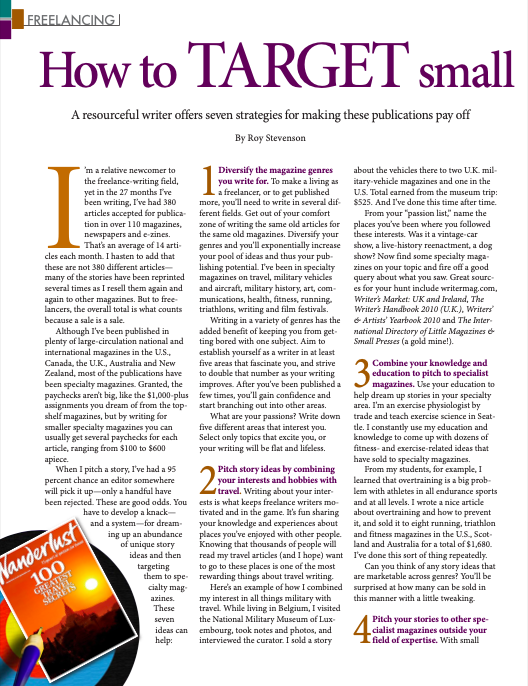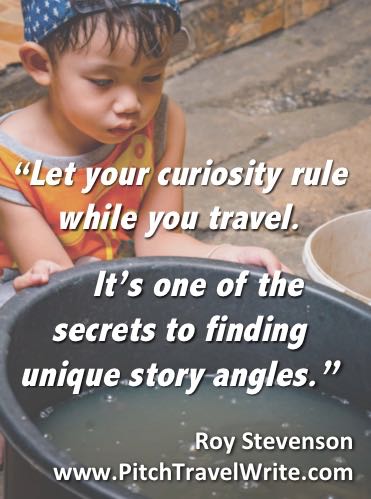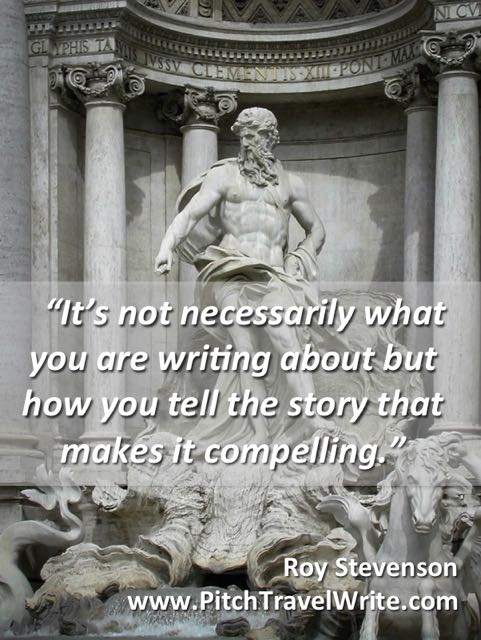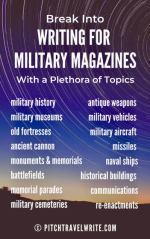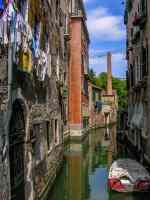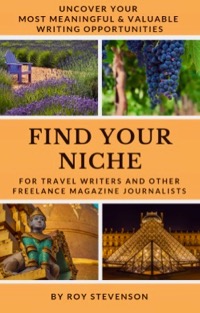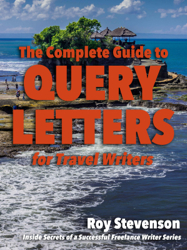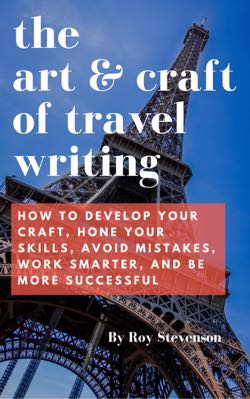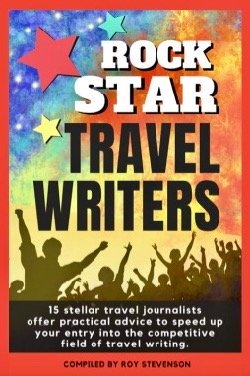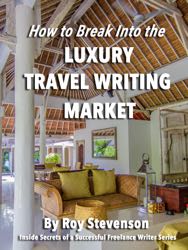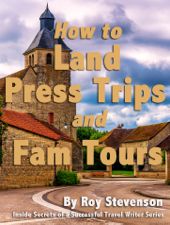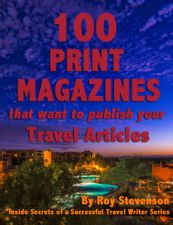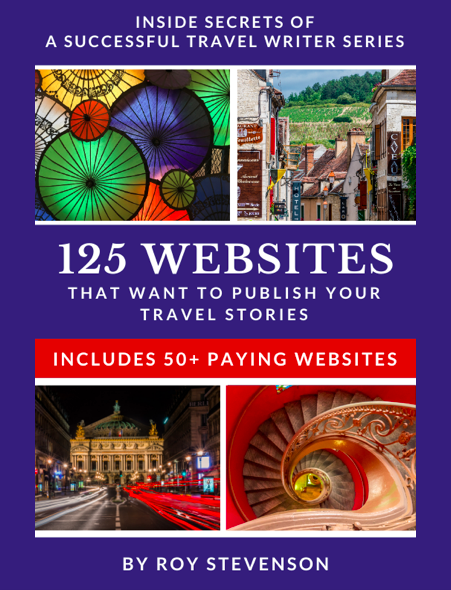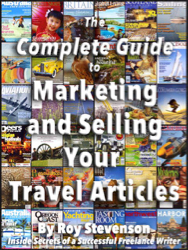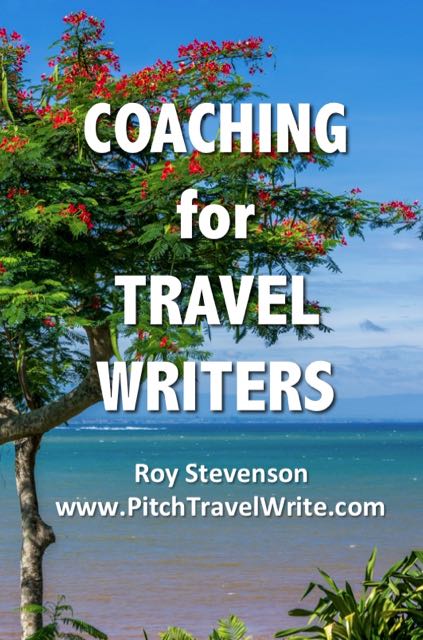- Home
- Travel Writing Craft Resources
- Ditch Your Travel Cliches
Ditch the Travel Cliches
By Roy Stevenson
If you’re using cliches in your travel stories, you’re doing your freelance travel writing career a great disservice. Using clichés is unoriginal. And it reveals a lack of imagination.
Nothing screams “amateur” more to an editor than a story riddled with travel clichés. It will prevent you from moving into paying print media.
Hands up if you’ve ever used any of these phrases or words in your travel writing?
|
|
Worn-out phrases like these read as if they're lifted from a destination advertorial. And they’ll effectively block you from breaking out of the bottom-feeding “top ten” and “listicle” travel writing hell.
But first, let’s establish what clichés are before we trash them any further.
What Are Clichés?
Travel cliches are trite, overused words or phrases used to describe a destination. They also go by the names of platitudes, trite phrases, commonplace words, hackneyed phrases and even old sayings.
According to the dictionary, “They tend to betray a lack of original thought.” They lost any real depth of meaning to us long ago because we’ve seen them so many times.
Interestingly, there seems to be a plethora of travel bloggers and travel website writers using these tired phrases. It might seem stylish to use them because other bloggers are using them. Don’t be tempted! It’s a situation of the helpless being led by the clueless.
There’s nothing stylish about using travel clichés. In fact, they have the complete opposite effect. Cliches will reduce your story from an absorbing read to a worn out and limp article, in a few agonizing paragraphs.
And I’m being kind. Some travel writers are more scathing when describing the effects of clichés on travel writing.
One writer describes clichés as “sucking the vitality out of a story that will alienate readers and destroy your credibility”. The same writer claims cliches are “bloated empty words”. Strong stuff!
Wait, there's more. What are Flat Adjectives - Clichés Close Cousin?
Here are a few more stale phrases:
- Green and verdant countryside (or park, or forest)
- Steamy jungles
- Pristine beaches
- White sandy beaches
- Golden beaches
- Crystal clear tourmaline seas
- Sparkling azure sea
- Unspoiled scenery
- Emerald green lake
- Cascading waterfall
- Majestic mountains
- Rolling hills
- Exotic islands (or people, or food)
- Where east meets west
- Seething masses of humanity
- Bustling/colorful markets
- Buzzing with activity
- Sun drenched
- Sun dappled
- Friendly locals
- Twisting alleys
- A warren of meandering lanes
- A maze of narrow streets
- A city/land of contrasts
- Best-kept secret
- Panoramic views
- Stunning vista
- Immensely popular
- Beautifully preserved
- Vibrant cultures
- A place to see before you die
- Step out of your comfort zone
- A feast for your eyes
- An architectural feast
- Something for everyone
- A trip back in time
- Like traveling back in time
- Timeless
- Where old meets new
- Steeped in history
- Rich in history
- A rich heritage
- Multi-cultural heritage
- The next/the new
- Be sure to catch/see/do
- Don’t miss
- Bucket list
- Must-see
- Nestled in the . . .
- Perched on the . . .
- Jam packed with . . .
- Quaint
- Undiscovered
- Eco-friendly
- Shrouded
- Picturesque
- Idyllic
- Hidden gem
- Unspoiled gem
- Jewel
- The pearl of . . .
- A treasure trove of
- A secret treasure
- World-class
- A melting pot
- Wanderlust
- To die for
- Ornate
- Mecca
- Oasis
- Iconic
- Paradise
- Beckons
- Authentic experience
- Classic
- Cozy
- Delectable
- Fascinating
- Interesting
- Lively
- Playful
- Refined
- Sublime
- Upscale
- Spacious
- Trendy
- Alluring
- Rustic
- Quirky
- Eclectic
- Enchanting
- Wonderland
- Ultimate
- A charming eatery
- Hearty breakfast
- An explosion of flavors
- Succulent
- Sumptuous
At first glance, words such as magnificent, wonderful, spectacular, beautiful, charming, awesome, amazing, incredible, quaint, nice, fine, cheap, and fabled seem to work when describing a place.
But stop and think about these words. First, you’ll realize they’re ambiguous. Then you'll realize they’re meaningless, even mindless.
We call them “flat” adjectives because they lack interest and emotion. They’re dull and lifeless. Just the opposite of what you’re trying to portray in your travel story.
And they’re subject to all sorts of personal interpretation. What is “quaint” to one person may be tacky to another. What is “breathtakingly beautiful” to one reader may be uninteresting to another. What is “spectacular” to one person may be unimpressive to another.
Flat adjectives tend to exaggerate the heck out of the destination without saying anything specific enough to engage the reader.
Why We Overuse Cliches
Why overuse flat adjectives and cliches if they’re so destructive to your stories?
When we’re facing tight deadlines they’re an easy fallback. Or, when we’re tired we stick in whatever word comes easiest. It’s a form of “default” writing. A crutch.
We interject these words into our stories as a kind of travel writer’s shorthand. But they contribute little to our stories.
It’s lazy travel writing. It indicates limited talent because the writer struggles to provide original, thoughtful descriptions.
We’re all guilty of using cliches, including me!
You must avoid using cliches if you want to be a professional travel writer and expect to be paid for your work.
Think about your favorite glossy print travel magazines. As a travel writer, entertaining the reader is your goal. To get paid for your article you need to engage the reader rather than producing bland advertorial copy.
You need to tell an original story. Magazine editors pay you to conjure up images in the reader’s mind, in your own words. You should help the readers “see” a place, in your own voice. Your prime mission is to help the reader enjoy the ride while showing them why the place resonated with you.
Your job as a travel writer is to create intimacy and trust with your readers. Don't bombard them with exaggerated descriptions. Your readers are looking for interesting details about the destination, rather than generic and empty statements.
Cliches sound pompous. Readers abandon travel articles when they encounter cliches. It annoys them.
And you can’t tell a compelling story by using clichés. Stories that read like advertorials do not pass muster in top echelon travel writing. This lack of creativity will hold you back from advancing into to high-paying print media.
How To Avoid Using These Trite Phrases
I get it. It’s easier to be lazy and utilize stereotyped, trite phrases. It takes some hard work to carefully choose your words. It takes time and effort to dig deeper into our vocabularies and express what we’ve experienced in a place.
But with dictionaries and thesauruses online, it’s so easy to overcome this problem if you get stuck!
Your challenge as a travel writer is to use clichés as little as possible, and preferably not at all. When you notice cliches creeping into your stories, it’s time to actively search for specific new ways to describe your scenes.
For unique stories that make your readers feel a sense of place, ditch the clichés and use detailed descriptions.
Be Specific!
Being specific and using details to show the reader the place, instead of vague terms like “charming” or “picturesque”, will bring your travel pieces to life and boost you to the next level of travel writing.
Flesh out your story with specific facts and tangible descriptions. Choose your words carefully. Include specific details and your readers will stay with you. If you use broad, sweeping generalizations, you’ll lose your readers fast!
Describe what you mean by “spectacular” or “awesome” or “charming” without actually using these words.
This means you must think harder to describe your destinations or experiences. Focus on highlighting the details that bring the place to life. Carefully select the details about a place to evoke the feeling of the place.
Instead of describing a bay as “beautiful”, show the reader what makes it beautiful. “You gaze upon the long, sweeping bay of dazzling sand, and in the distance you see shimmering blue waves that seem to go on forever. Bent coconut trees recede up the shoreline with nary a human to be seen.” This description gives the reader a lot more information than “beautiful”.
And, finally, if you are misguided enough to label a place or an attraction with clichés, at least have the decency to explain in your own words why you have chosen that label. Redeem yourself with splashes of well-written description to add life to your articles.
Read Good Print Magazine Travel Stories
A great place to learn how to start ditching your clichés is by reading high quality print travel articles. Note how the top travel writers describe their destinations and experiences without resorting to clichés. Take notes or highlight if you need to.
Why read magazine stories versus blogs? You’ll get high quality writing in print because they have a professional editor.
Editors are personally invested in their magazines. They see their publications as a reflection of their skills and literary standards. They won't let poorly written stories slip through.
Online travel media hasn’t evolved to the standard of print and should be chosen carefully.
Read Travel Books
Another source of top line travel writing is travel books. I’ve just finished reading “The Lunatic Express: Discovering the World via its Most Dangerous Buses, Boats, Trains”. I was mesmerized by Carl Hoffman’s descriptions of the places he visited. And, as far as I could tell, Carl described his destinations and experiences without one cliché!
Here’s a list of good cliché-free travel writing on the web
This independent website publishes travel stories with a strong sense of place, character or time.
www.Nowheremag.com
This Australian travel writer and guide writes with an edgy voice, abrupt, yet refreshingly clear. No trite phrases here! Just great stories.
www.Yomadic.com
John Steinbeck’s article on Positano in Harper’s Bazaar still remains one of the finest travel writing pieces, despite being written in 1953. Download the free PDF of Steinbeck’s story
Break into Travel Writing
with the Creative Pack
The Creative Pack includes 3 eBooks that are the starting point for every travel writer: dreaming up unique story ideas that you can sell, finding the best writing niches for you based on your interests, passions and experience, and the art & craft of travel writing. They’re the pieces of the puzzle that come before you ever write a query letter to sell your articles to magazine editors.
If you're just getting started in travel writing, this group of resources will help you improve your craft, generate story ideas that sell, and develop your own unique and meaningful niche.
These eBooks can be purchased separately, but when you buy the bundle you'll save more than 10% off individual prices! Learn more here ...
Related articles that will interest you:

Roy Stevenson is a professional travel writer and the author of www.PitchTravelWrite.com. Over the past ten years, he’s had more than 1000 articles published in 200 magazines, trade and specialty journals, in-flights, on-boards, blogs and websites and has traveled on assignment around the U.S. and to dozens of international destinations.
IF YOU ENJOYED THIS POST, GET UPDATES. IT'S FREE.
